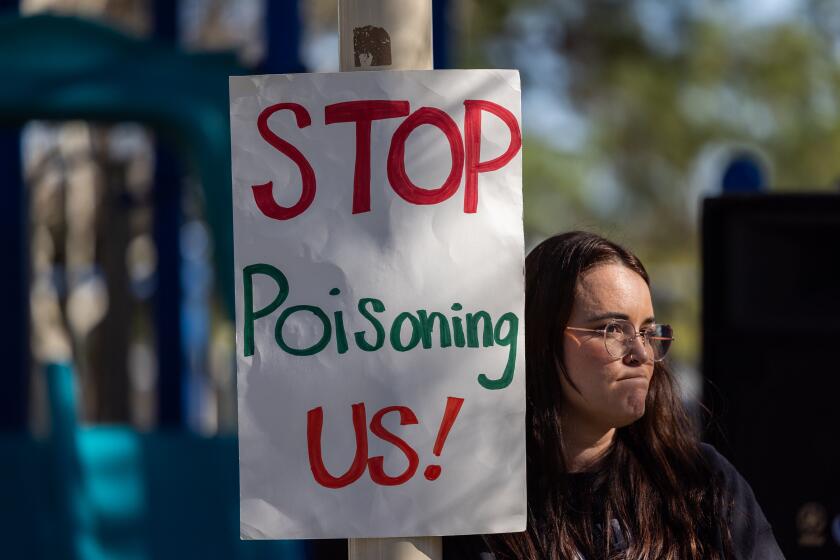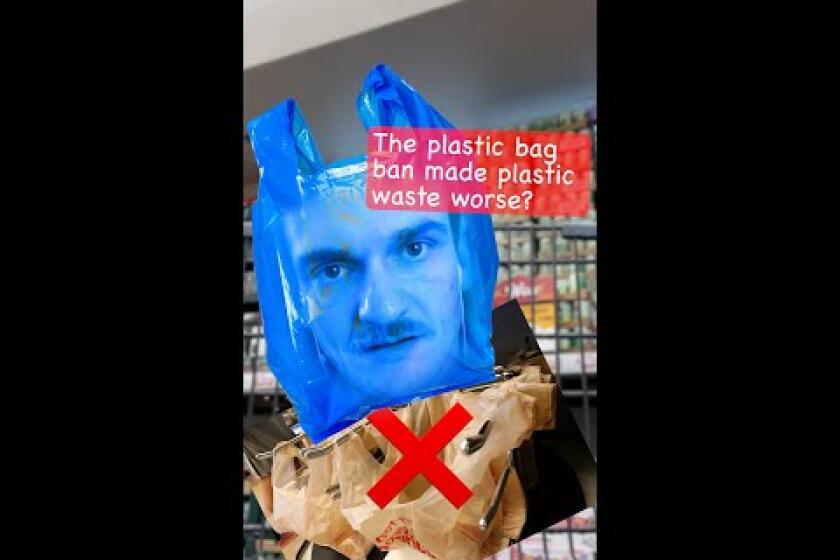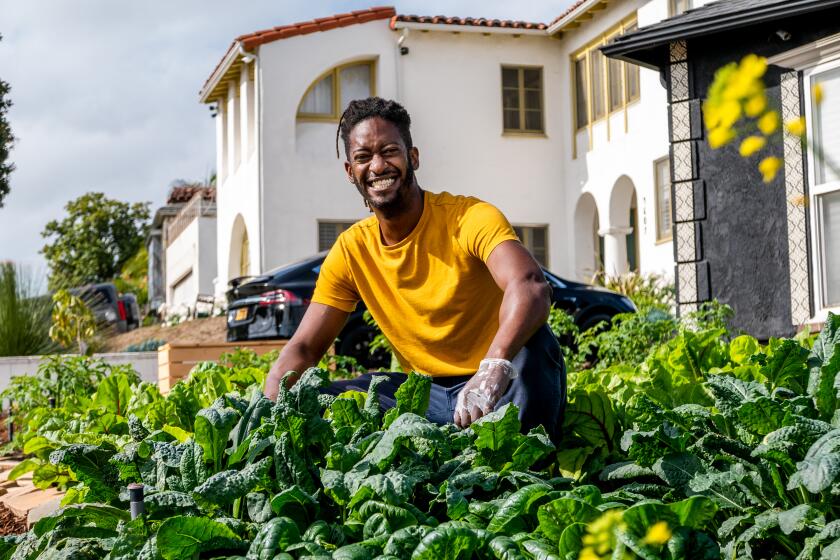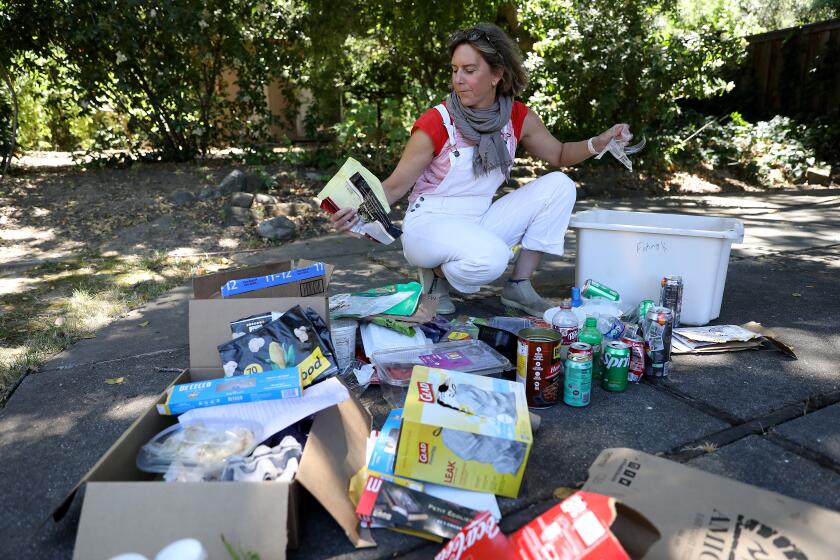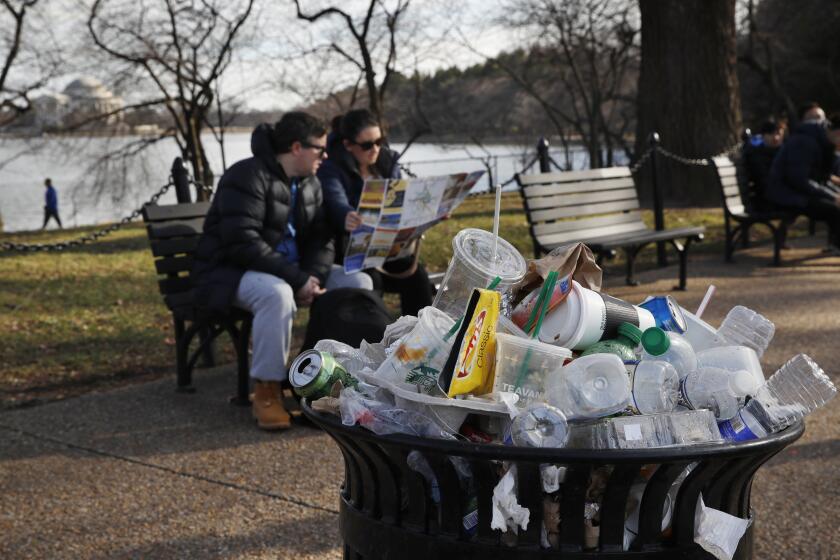Opinion: Ours is the most wasteful civilization in history. Here’s how to stop that
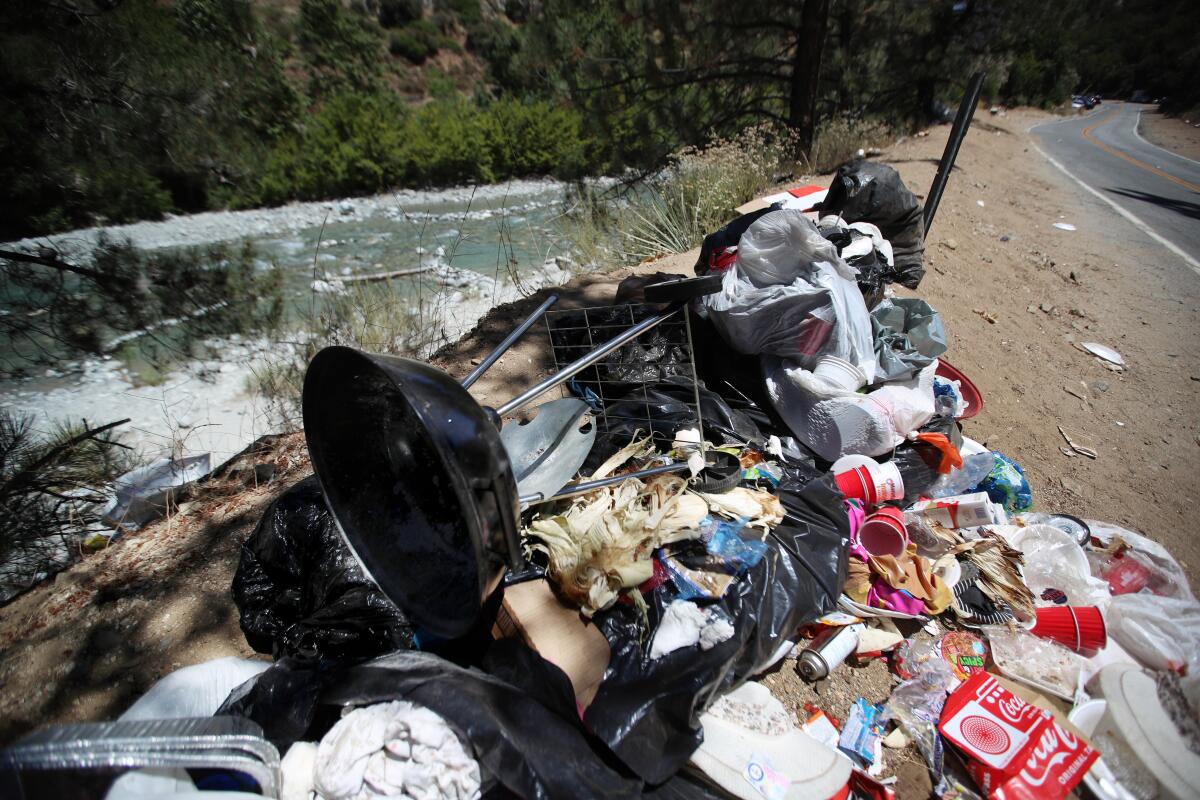
- Share via
What if the looming calamities of climate change, plastic pollution, the energy crisis and our whole environmental doom-scroll are symptoms of just one malady and it’s something we actually can fix?
That’s right, the planet is fighting a single archvillain: Waste.
Americans live in the most wasteful civilization in history. This goes way beyond what we roll to the curb each week. It’s rooted in what we eat and drink and how we cook. It’s the main thing you pay for in your utility bills and at the gas pump. Waste is so deeply embedded in our economy, products and daily lives that it’s hard to see clearly, or to see at all.
For decades, landfills have been the cheapest, easiest way to deal with the mountains of garbage people dispose of every year. Now we have to deal with the impact on neighbors and the climate.
Thinking of seemingly unsolvable Earth-destroying crises as byproducts of waste is powerful and hopeful. There’s no partisan divide where one side says, “Yay waste!” Instead there are ordinary blue state and red state people at work in our neighborhoods right now, showing us how to tackle waste and the catastrophes it drives — and saving, even making money while doing it.
The best opportunity for healing our economy, quality of life and the planet begins with reframing the entire doom-scroll as waste. What we choose to use is important, but it’s what we squander that’s killing us.
It’s been 10 years since California banned single-use plastic bags and our plastic bag waste per pound has…GONE UP?!
Don’t believe it? How is it “normal” that 40% of what our industrial farm and food system produces ends up as garbage? Where’s the outrage over a fossil-fuel-dominated energy system that wastes two-thirds of the $1.3 trillion we spend each year on fuel and electricity? Why no protests over miles-per-gallon fuel economy ratings that ignore how every gasoline car wastes $4 out of $5 we spend at the pump?
The average American throws out three times more trash today than in 1960. Pin much of that garbage growth on plastic waste, so pervasive now that tiny bits of it are in food, water, beer and even human hearts, lungs and newborn babies’ poop. The World Wildlife Fund estimates that we swallow up to a credit card’s worth of plastic every week! Yet we keep buying it and chucking it, because that’s “normal.”
Jamiah Hargins wants microfarms to feed Los Angeles one frontyard at a time.
But wastefulness at this level is neither normal nor inevitable. We can make different choices. Start with some (or all) of these five waste-fighting moves that aren’t about giving up stuff you love, but upgrading to things you’ll love more:
Kill your lawn and plant a vegetable garden. It’s one of the best things you could do for the planet’s health and your own, and you’ll get tastier, more nutritious veggies with no trips to the grocery store. You could also support the fight against what Jamiah Hargins calls “food apartheid.” His South Los Angeles nonprofit, CropSwapLA, builds front-yard urban microfarms in food deserts that can turn 1,000 square feet of grass into enough veggies and fruit for 25 to 40 families a week. “Why mow your yard,” Hargins asks, “when you can eat your yard?”
Turn off your gas stove. The main thing we’re cooking with gas is the planet — and our kids’ lungs. So cut it out. Gas stoves waste 70% of their fuel and create a 42% higher risk of childhood asthma. Not up for a major appliance upgrade? Try an inexpensive countertop induction cooker (as little as $65) for everyday, and reserve gas stoves for feasts (windows open, please). Chef Rachelle Boucher, once George Lucas’ private chef and now with the Bay Area’s Building Decarbonization Coalition, became a superfan of induction stoves (cooking with magnets, not flames) after switching off the gas all but ended her husband’s asthma attacks.
Plastics are everywhere. As an environment reporter, I make informed choices when shopping, trying to minimize the amount I bring in. Or I thought I was.
Just say no to disposable plastics. Plastics are waste incarnate, says Bay Area-based Anne-Marie Bonneau, the Zero Waste Chef. Most plastics are rarely recycled and bags and wraps never are. (Yes, we’ve been lied to for decades.) Plastic containers can release toxins into food, she says, especially when heated — so don’t ever microwave in plastic! Go with glass or metal containers, whether reusable or single-use. Save money on bags and wraps by reusing peanut butter, pickle and jelly jars for food storage. Bring your own grocery bags.
Support “polluters pay” laws. Officially known as producer responsibility laws, these statutes shift the cost of recycling (or lack thereof) from taxpayers back to the producers of things like plastic soda bottles. Maine stepped up first, and other states followed. California’s “polluters pay” law doesn’t go live until 2028, and you can bet all kinds of industries will spend that time trying to water it down. It’s up to us to keep the pressure on officials to hold the line. This isn’t regulation, says environmentalist Sarah Nichols, architect of the breakthrough Maine law. It’s pay-for-what-you-break capitalism — an incentive to make less polluting and more reusable products.
The legislation heads off what would be a costly and contentious ballot measure and pushes California ahead of the world in the fight against plastic waste.
Drive the real vehicle of the future: Take advantage of the fact that the average driver travels only 37 miles a day, and most of our trips are 10 miles or less. Which means EV “range anxiety” is a marketing and media creation. Why not try parking your gas-wasting car for short trips and ride-share, borrow or buy an eBike, e-scooter or street-legal electric golf cart. Just ask Mayor Kim Learnard of Peachtree City, Ga., where 39,000 residents have made mini-EVs their money-saving, traffic-dodging mainstay: “It’s made driving fun again.”
Once you start seeing waste clearly, you won’t be able to stop. And once you experience the benefits, you won’t want to. This is how change spreads and how we turn the tide. Rethinking waste as our archvillain isn’t just a word game — it’s the secret sauce that turns anxiety and inertia into hope and action, because waste is the one big problem anyone can do something about.
And collectively, our choices do matter: They can drive the policies we need and overturn ones we don’t, they can move markets, they can make harmful products lose to beneficial ones, and they can make, break or remake economies. And, yes, they can help save the planet, too. Just by being less trashy.
Edward Humes is a Pulitzer Prize-winning journalist. His latest book, “Total Garbage: How We Can Fix Our Waste and Heal Our World,” will be published in April.
More to Read
A cure for the common opinion
Get thought-provoking perspectives with our weekly newsletter.
You may occasionally receive promotional content from the Los Angeles Times.
